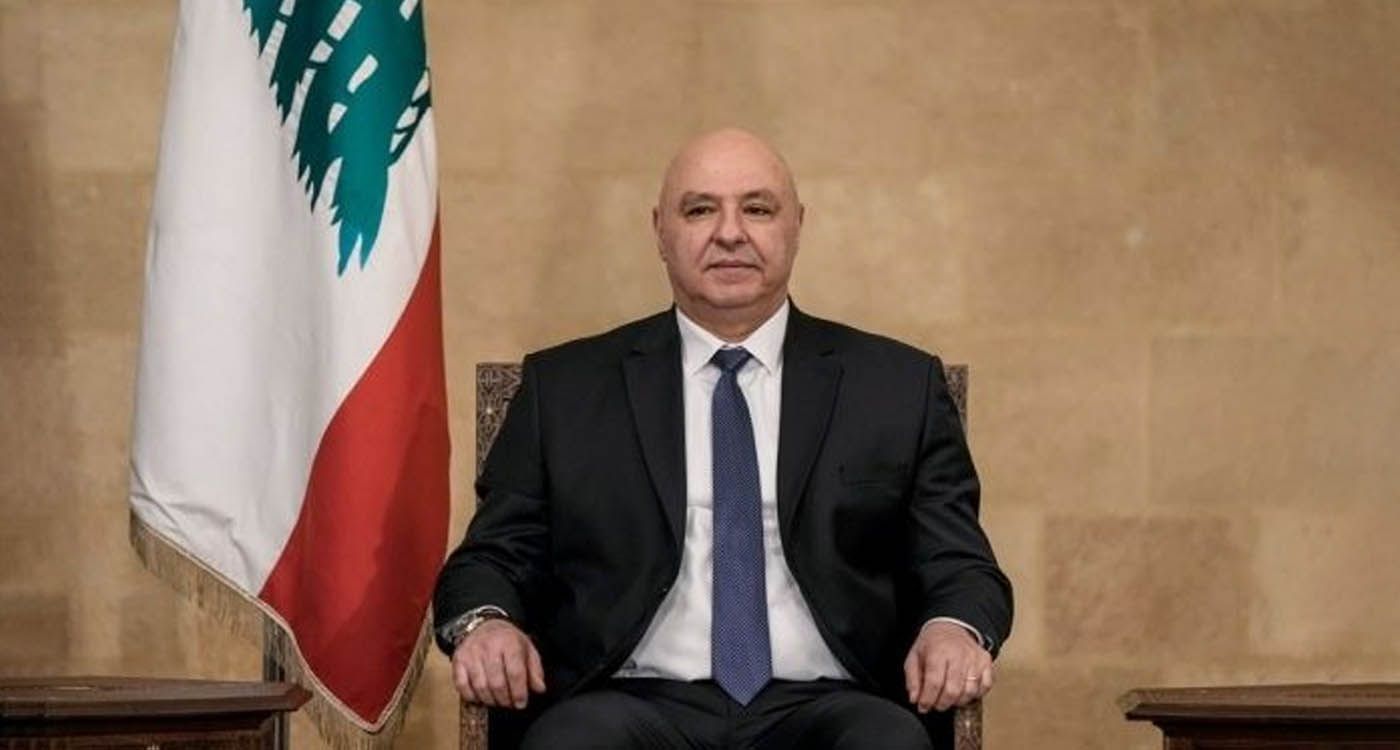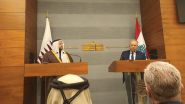
President Joseph Aoun conducted a series of high-level visits to key security and military institutions on Tuesday, underscoring his administration’s firm stance against corruption and its commitment to asserting the sovereignty of the Lebanese state.
Early in the day, Aoun visited the General Directorate of State Security in Ramlet el-Bayda, where he met with Director General Major General Edgar Lawandos and senior officers. In a firm address, the President reiterated that combating corruption remains a top priority for his presidency.
“Your main mission is to fight corruption, which is the root cause of the economic crisis and the suffering of the Lebanese people,” Aoun declared. He issued a stern warning emphasizing that “impunity will no longer be tolerated. No one is above accountability. You must resist all forms of pressure.”
Following this, Aoun proceeded to the Ministry of Defense for discussions with Defense Minister Michel Menassa, and then to Army Command Headquarters, where he met with Army Commander General Rodolphe Haykal.
During the visit, the President paid tribute to soldier Fadi el-Jassem, who was killed the previous day while dismantling unexploded ordnance in the Aaziye valley. Three others were wounded in the incident. “The Lebanese army has paid the price of blood to defend the unity, sovereignty and integrity of its territory. It will continue to fulfill its duty despite the difficulties,” Aoun stated, urging the military to maintain its cohesion amid ongoing challenges.
An extended security meeting followed, attended by Minister Menassa, General Haykal, the Military Council, and Head of Military Intelligence Brigadier General Tony Kahwaji.
Aoun Pursues Dialogue with Hezbollah, Prepares for Doha Visit
On the eve of his official trip to Doha, Aoun announced that dialogue with Hezbollah is ongoing, with a focus on resolving the contentious issue of the state’s exclusive control over arms. Speaking to Al Jazeera, he confirmed that “the decision to entrust all weapons to the Lebanese state has been taken,” adding that implementation would occur “not by force, but through thoughtful dialogue.”
The President also addressed critical strategic matters including the security situation, reform efforts, Lebanon’s complex ties with Hezbollah, and international pressures.
On Israel’s continued occupation of southern Lebanese territories, Aoun said diplomatic efforts are underway with Arab and international actors including the US, France, and the European Union to compel Israel to abide by international resolutions and release Lebanese detainees.
He commended the Lebanese army’s role in securing areas south and north of the Litani River, highlighting recent operations in which tunnels and arms caches were uncovered and dismantled without confrontation with Hezbollah. “This indicates a degree of cooperation, even flexibility, on the part of the party,” he noted.
Regarding border demarcation, Aoun called for the establishment of a committee similar to the one overseeing maritime borders, while firmly ruling out any talks on normalization with Israel. He reaffirmed Lebanon’s adherence to the Arab Peace Initiative launched in Beirut in 2002 and the resolutions of the Riyadh summit.
Lebanese-Syrian Relations
Turning to Lebanon’s eastern frontier, President Aoun advocated for a gradual normalization of relations with Syria based on mutual respect and sovereignty.
“Syria’s stability reflects on Lebanon. We need to rebuild a balanced relationship,” he said, confirming the resumption of dialogue with the new Syrian authorities. He hailed the recent defense ministers’ meeting between the two countries, organized under Saudi mediation, as a breakthrough in restoring bilateral security coordination particularly against smuggling.
“Since this meeting, no major incidents have been reported on our eastern and northeastern borders,” Aoun noted, calling for the formation of joint committees to demarcate land and maritime boundaries.
On the contentious issue of Syrian displacement, Aoun reiterated his position that conditions are ripe for a gradual return of refugees. However, he pointed out that international sanctions on Damascus are obstructing this process. “Without lifting the sanctions or providing economic assistance to Syria, the return of refugees becomes nearly impossible,” he warned.
He urged international organizations to actively facilitate repatriation and support reintegration efforts.



Comments